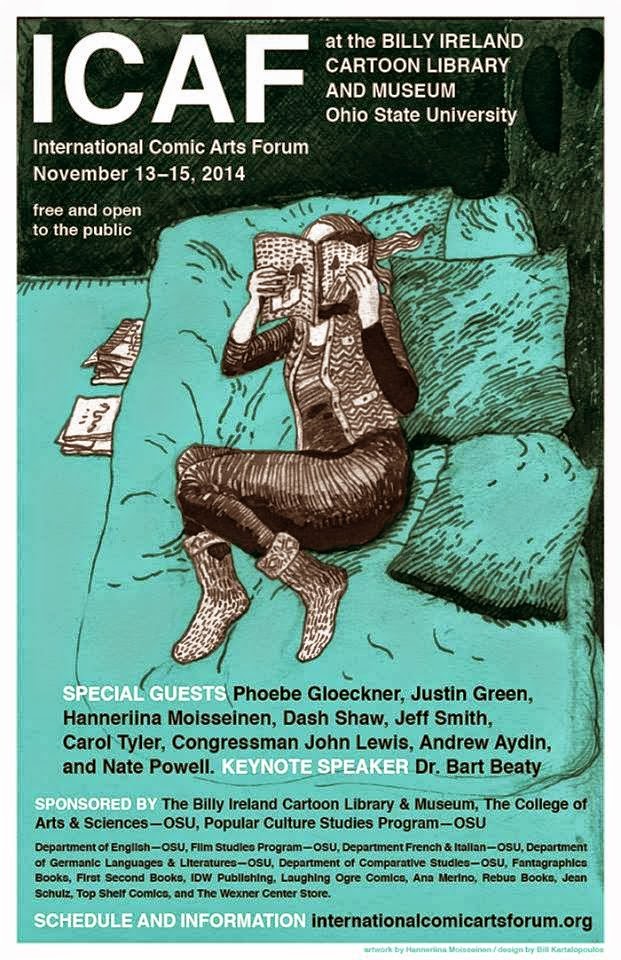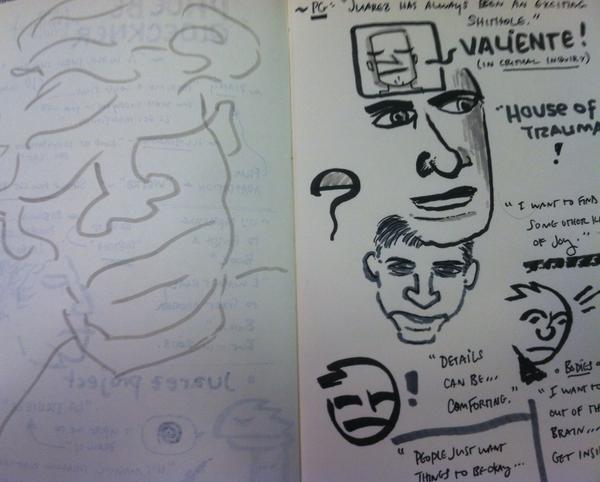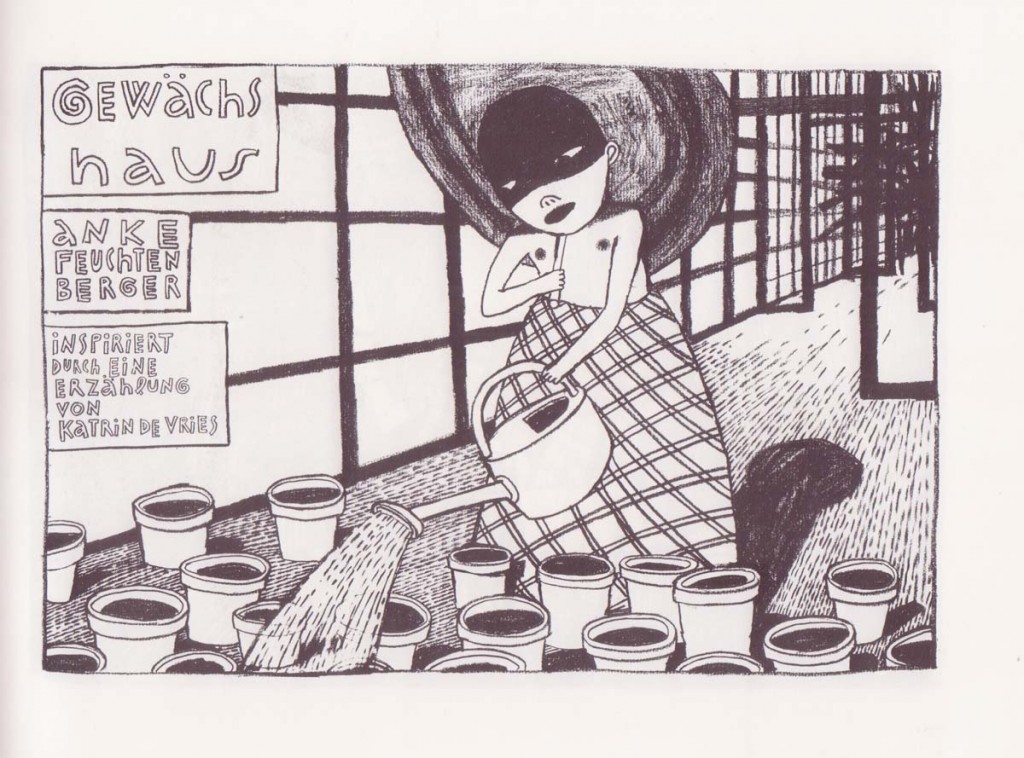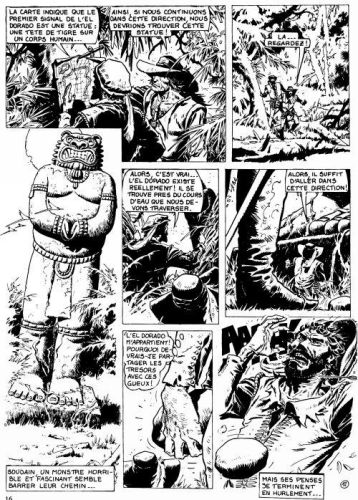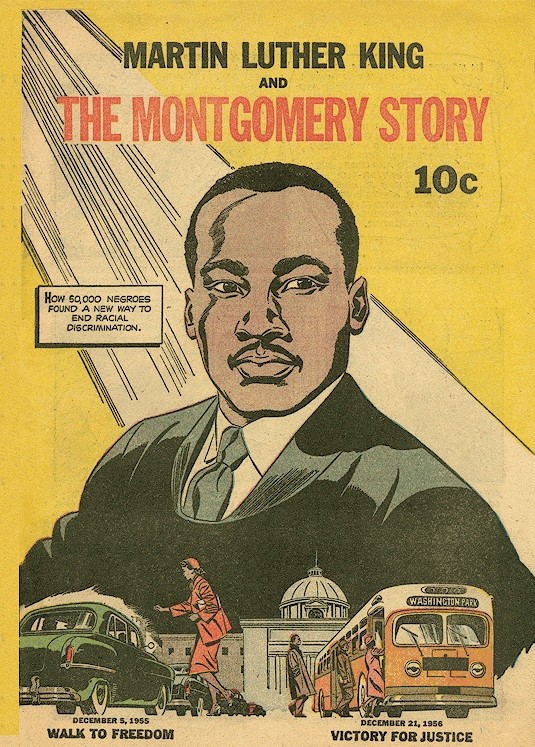Last week I had the pleasure of attending the International Comic Arts Forum at the Billy Ireland Cartoon Library and Museum at the Ohio State University:
Going into ICAF, I really didn’t know what to expect, but like other first time attendees I was immediately struck by how friendly and outgoing everyone was. There was very little sense of the hierarchy that one often gets in more hoary academic circles. Instead, I found myself happily immersed in a group of fellow comic book fans and scholars, who were as excited to hear about my research as I was to hear about theirs.
As compared with the academic conferences and comic cons that I’ve attended in the past,1 it felt a little bit like a small indie comic fest, with the key difference being that the discussion of comics was being placed on the same level as the production of comics. I think this is something that other, non-academic comic fests could learn from ICAF. Unlike other media, such as film, I’ve found that the line between creator and critic is much less well-defined in comics. Sitting in the audience for panels, I noticed many attendees doodling in the notebooks provided by Ohio State. This artwork was enthusiastically shared online alongside more traditional commentary, and one presenter even made a comic book version of her presentation!
Source: Charles Hatfield
I’m entirely why comics studies as a field is so much more open to this kind of experimentation than other fields. Maybe it is because comics are (relatively) easy to make? Or maybe it is because comics are traditionally a ‘low’ medium so critics of comics are more willing to step into the role of creator? (Or maybe I’m just not familiar enough with other fields! The French New Wave director François Truffaut, for example, was a critic before becoming a director.)
The other aspect of ICAF that really struck me was the commitment to expanding the conversation beyond Anglophone North-American comics. During my panel, for example, my presentation on Li Kunwu and Philippe Ôtié’s graphic novel A Chinese Life, got people talking about the impact of State censorship on film and comics. Paul Morton’s presentation on the Serbian cartoonist Aleksandar Zograf likewise brought up questions of the role of comics in representing history, as did Elizabeth Nijdam’s presentation on Anke Feuchtenberger and other post-1989 East German cartoonists, and Héctor Fernández’s engaging presentation on the Argentinian comic book Alvar Mayor.
Detail from Li Kunwu and Philippe Ôtié’s 2010 A Chinese Life
Page from Aleksandar Zograf’s 2004 work, Pisma Čkalji
Page from Anke Feuchtenberger’s 1998 Somnambule
Page from Carlos Trillo and Enrique Breccia’s Alvar Mayor
This commitment to exploring comics in a global sense was also mirrored in the choice of guest speakers. While Justin Green, Carol Tyler, Dash Shaw, Phoebe Gloeckner and Jeff Smith all hail from US, Phoebe Gloeckner’s challenging presentation dealt primarily with her ongoing project to document the Juarez murders through sculpture and photography:
Additionally, the Finnish cartoonist and Rune singer Hanneriina Moisseinen provided a fascinating account of her own attempts to combine performance art with visual narrative:
Hanneriina Moisseinen’s 2014 Syntymäpäivä / Birthday
The last night of the conference featured a moving speech by Congressman John Lewis who came to discuss his new graphic novel, March, co-authored with Andrew Aydin and illustrated by Nate Powell. As someone who has followed Nate’s work since his self-publishing days, I found myself extremely proud to see how far he has come and his ongoing commitment to social justice.
Cover to the original 1956 “Montgomery Story” comic which inspired March
In the end, though, what has stuck with me the most from ICAF is the great conversations I had over lunches and dinners and between panels. It heartens me to see that informal dialogue of this will be strengthened and encouraged with the formation of the Comic Studies Society and its graduate caucus, of which I am now a member. I look forward to ICAF 2016 at University of South Carolina!
- In 2010, I participated in an undergraduate conference for McNair Scholars at Portland State, and in 2013 I organized the graduate conference for the Asian Studies Department at UBC. I’ve also been to the San Diego Comic Con a couple of times, as well as the Stumptown Comics Fest, the Portland Zine Symposium, and for the first time this year, the Vancouver Comic Arts Fest. [↩]
